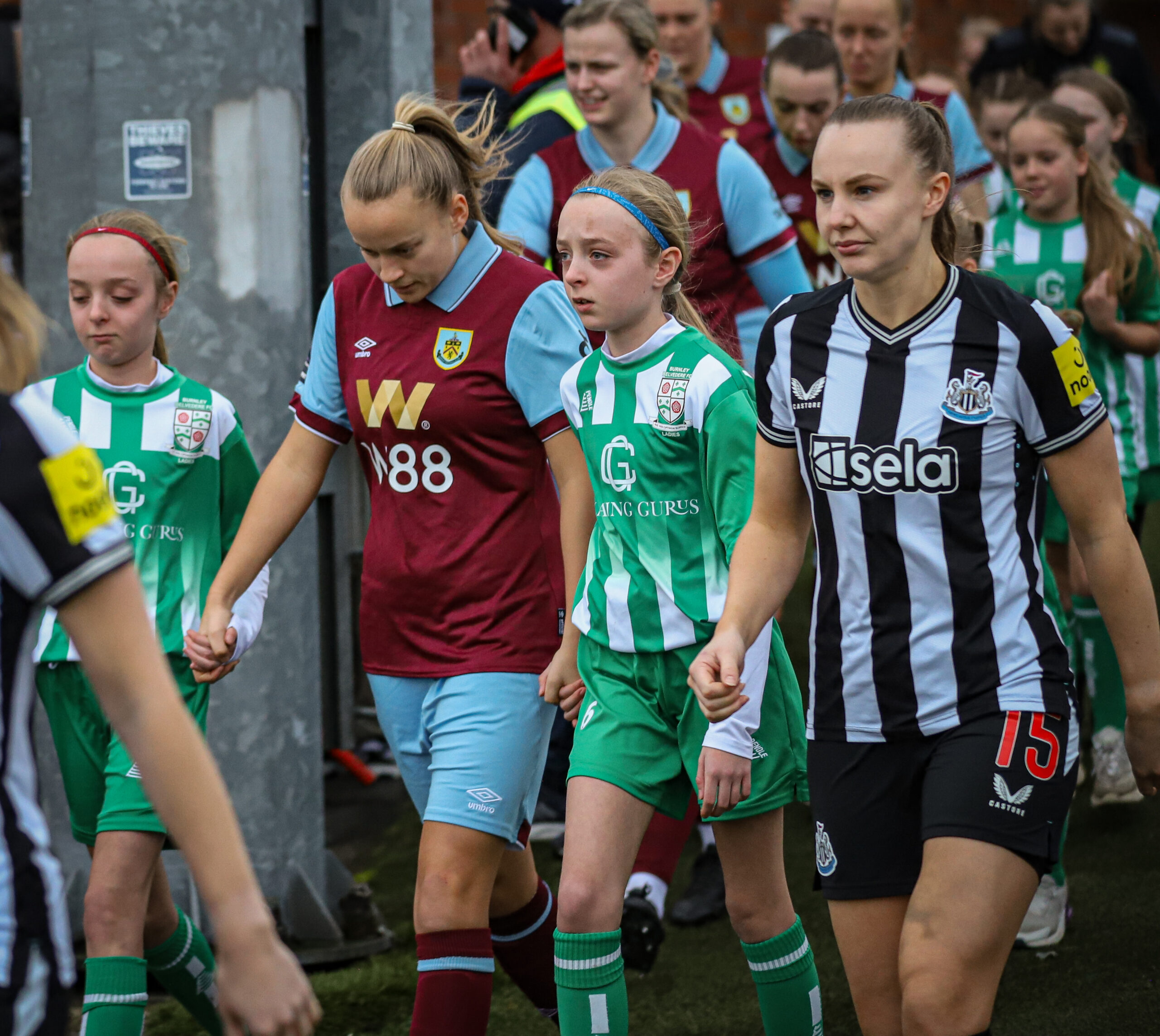On 22nd May 2025, Burnley FC Women announced that they will become a full-time professional club from the 2025/26 season, demonstrating how women’s football is progressing slowly but surely.
Burnley FC Girls and Ladies was founded in 1995 by John Lister, starting with just 15 players who trained at Turf Moor and played their home matches at the club’s Gawthorpe training facilities. Despite their long-standing presence, the women’s team was only fully integrated into the main club structure in 2021. Currently competing in the FA Women’s National League North (Tier 3), they narrowly missed out on promotion this season, finishing fourth, 12 points behind champions Nottingham Forest.
Lola Ogunbote, Burnley Football Club’s first-ever Head of Women’s Football, powerfully stated that the club wanted to be known for making changes not because they have to, but because they want to. Burnley is setting a powerful example by choosing to professionalise their women’s team regardless of promotion, sending a clear message that these players are inherently worthy of investment — they don’t need to earn it through results alone. The club’s decision reflects their unwavering belief in the squad’s talent and potential to make real progress.
Inspired by Nottingham Forest, who made their women’s team full-time professional ahead of the 2024/25 season and were rewarded with promotion, Burnley’s approach highlights the strong, positive correlation between meaningful investment and on-pitch success in the women’s game. Where Forest’s professionalisation paved the way to the WSL2, Burnley’s bold commitment now lays the foundation of what could very well be their own promotion story next season.
Alan Pace, who became the owner and chairman of Burnley in December 2020, evidently had a huge impact on their development, hitting the ground running and consequently being praised for his personal and financial investment in the women’s team. Burnley laid out a long-term vision focused on integrating the men’s and women’s first teams by sharing resources and expertise. A key part of this plan was the adoption of a hybrid model — employing several players full-time while supporting others who balanced football with work or study commitments.
In Episode 7 of Burnley: Keeping the Faith, YouTube series, chairman Alan Pace says:
“It’s important to go full time, to put the resources behind it and to make sure we’re giving the opportunities to those involved to progress to the next level.”
In this transformational period of women’s football, where many club owners seem to be navigating how best to support the progress through trial and error, whilst facing setbacks through funding, branding and structural equality, Alan Pace is setting a powerful example. He has approached the women’s game with the right attitude: not as an obligation but a genuine desire and commitment to change. His dedication to building sustainable success and providing equal opportunities shows he is not just supporting progress but actively driving it.
He has also placed Burnley FC women in a position where they are confident enough to express interest in replacing Blackburn Rovers in the WSL2, following their withdrawal due to the owners’ unwillingness to provide the funding to meet the division’s new minimum license requirement. This move not only prevents a gap in the division, should the league accept their proposal, but also strengthens the league overall. By stepping up despite the significant financial commitment involved, Burnley are showing a willingness to invest, compete and break away from the historical fragility that has often undermined the women’s game. It signals a shift from survival to ambition, making women’s football look incredibly promising.



